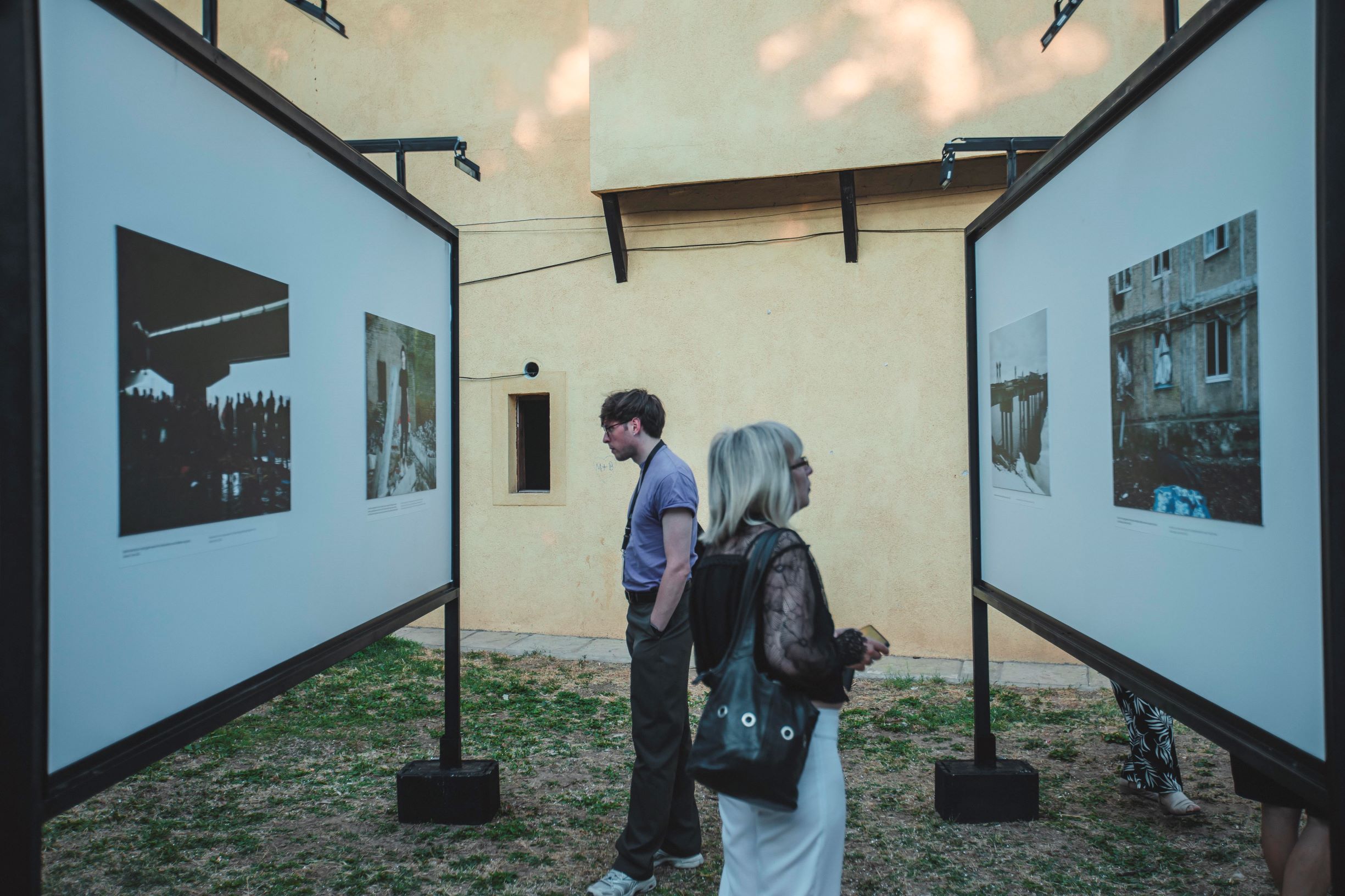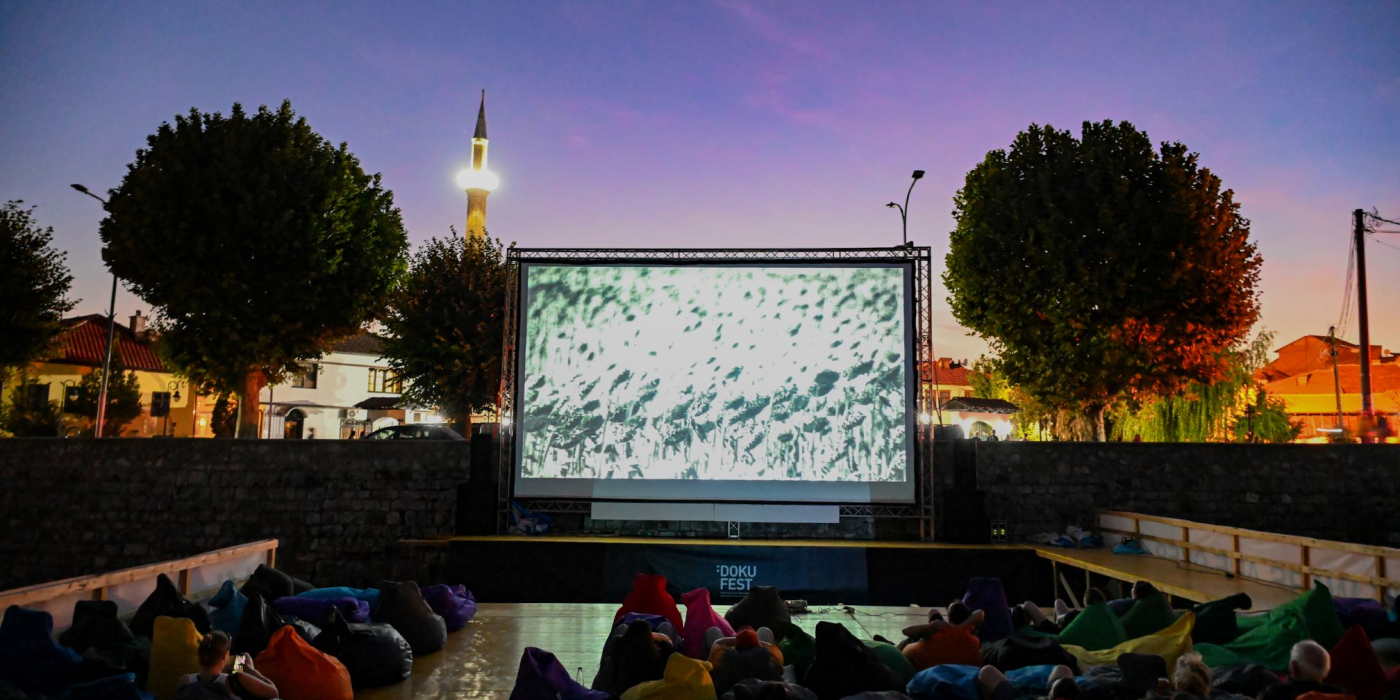06/08/2024
Because heavy situations never come one at a time, DokuFest’s New Order edition focuses not only on one but on two countries where humanitarian crises are more than just media events: Palestine, which has been showcasing films since the opening day, and Ukraine. For those interested in the politics of activism, it is known that one of the most conscious acts one can perform is to create space for other life stories to exist and voices to be heard. Monday, August 5th, marks the opening of the Ukraine-focused showcase, beginning with a photo exhibition followed by the screening of the feature film Iron Butterflies.
With tender kisses at the train station before Ukrainian soldiers depart for war, Mykhaylo Palinchak’s photo exhibition offers different articulations of what ruins are and how they can appear. While documenting war through visual arts is challenging, as terror and beauty can often result in ghoulish realizations, the tastefully curated exhibition by Sasha Nabieva and Ferdi Limani provides a gradual path to war atrocities. Starting with vibrant, captivating colors and ending with the exposed, still hand of a turned-gray body, the photographs showcase military forces, demolished landscapes of both public and intimate spaces, stand-alone crosses, swings, and acts of window-watching. Striking is the view of life from the ground, where ruination and annihilation take place, as well as a view of life underground, where a few sparks of hope and resilience can be seen. The exhibition was opened by Veton Nurkollari, DokuFest’s Artistic Director, who celebrated the festival’s first collaboration with Docudays, Kiev’s documentary film festival, in a few words. Yuliia Kovalenko, Program Director of Docudays, who was also present at the opening of the exhibition, drew attention to the larger landscape of worldwide misfortune: “Art is still able to bring the question of responsibility to the table and to teach us, finally, that never again is never again.”

The photo exhibition was followed by the screening of the first feature film in the Focus-Ukraine program, Iron Butterflies. This butterfly, unlike DokuFest’s, has iron wings, for starters. Unlike DokuFest’s butterfly, this one stands for violence and destruction in the way only a military aircraft can. Relying on television and newsreel archives, as well as phone footage and live-action filming, Roman Liubyi’s film takes us into an in-depth investigation following the fall of a Malaysian aircraft in 2014, traveling from Amsterdam Schiphol to Kuala Lumpur, which was hit in Ukrainian territory amid the ongoing conflict between the Ukrainian government and armed groups. The act of flying is thus the main character in this film, as kites, airplane toys, and airline trajectories that portray movement and freedom recur frequently. However, in a bold manner that blends dramaturgy and everyday life, the same act of flying is transformed into misfortune and becomes the very reason that cuts off people’s movement and freedom, both metaphorically and literally. The film’s main intention, however, is to show the world that the atrocities occurring in Ukraine have a longer history of continuous friction and violence, predating the world’s proper awareness of their gravity.
The Focus on Ukraine program will continue in the coming days, with A Bit of Stranger, Intercepted, Mission 200, and Nice Ladies, along with a carefully curated program of short films.
By: Enxhi Noni
Photos: Tughan Anit and Elmedina Arapi.
The Focus Ukraine project is implemented by DokuFest Kosovo and Docudays UA with the support of IZOLYATSIA foundation, Trans Europe Halles and Malý Berlín and co-financed by the ZMINA: Rebuilding program, created with the support of the European Union under a dedicated call for proposals to support Ukrainian displaced people and the Ukrainian Cultural and Creative Sectors.




